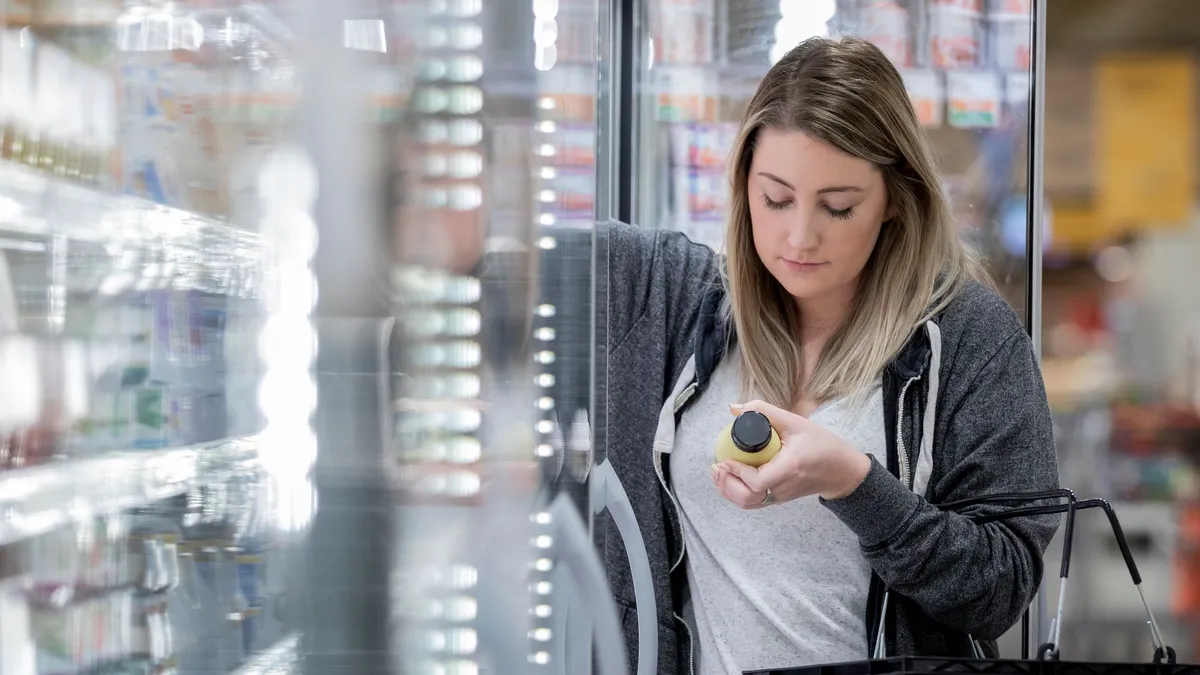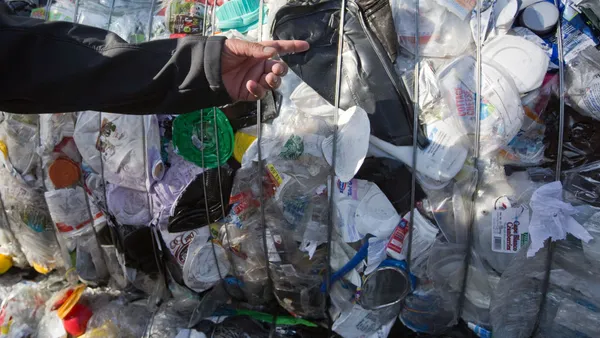Dive Brief:
- An extended producer responsibility program for packaging and paper is poised to become reality in Minnesota, pending Gov. Tim Walz’s signature. The Packaging Waste and Cost Reduction Act was included in an Environment and Natural Resources Budget and Policy bill prior to the legislative session ending May 20.
- Producers would be required to pay half of recycling costs come 2029, with that threshold ramping up in the years that follow, including to at least 90% by 2031.
- The text includes deadlines for appointing a producer responsibility organization and advisory board by Jan. 1, 2025. Producers would have to register with the PRO by July 1, 2026. An initial needs assessment would be due by Dec. 31, 2026.
Dive Insight:
Minnesota’s framework this session gained the support of multiple packaging industry groups.
“Minnesota’s packaging producer responsibility legislation is a fair compromise that establishes a model of shared responsibility,” Ameripen Executive Director Dan Felton said in a statement Monday. It marks the first time Ameripen has supported enrolled packaging EPR legislation, according to Felton.
By Ameripen’s analysis, the PRO would “remain focused on core activities without the burdens imposed by EPR laws in other states, such as artificial timelines for arbitrary recycling targets; mandates to fund recycling for massive commercial operations that can manage their own recycling costs or landfilling; and unrelated mandates around packaging composition.”
“The Minnesota packaging EPR legislation before Governor Walz demonstrates that each state is unique and should approach any recycling, composting and packaging policy by first considering its existing infrastructure and laws,” Ameripen wrote. “It also reflects compromise, and a reminder that legislative debates do not produce perfect policy, but rather a reflection of what may be possible at any given moment.”
A key voice for packaged goods companies also endorsed the bill. John Hewitt, vice president of packaging sustainability and head of state affairs at the Consumer Brands Association, urged Walz to sign it, saying in a statement Tuesday that the “landmark piece of legislation is the result of a collaborative legislative process with substantial input from stakeholders across the packaging value chain.”
In an April letter, the Flexible Packaging Association said it was switching its initial opposition to support the Packaging Waste and Cost Reduction Act. Originally, hangups for FPA included lack of critical goods exemptions and all program costs falling on producers. FPA said it supported updates including exemptions for medical devices and infant formula and cost-sharing with other players in the waste supply chain.
However, the American Forest & Paper Association still opposes the bill. Earlier this year, AF&PA said that while EPR schemes can be effective for improving recycling for materials with limited recycling rates, more than 81% of Minnesotans have access to curbside recycling programs accepting paper packaging and printed papers. AF&PA called for completion of a needs assessment first.
In a statement Tuesday, AF&PA President and CEO Heidi Brock urged Walz to veto the bill, saying the budget bill “is not the appropriate vehicle for legislation that ultimately punishes responsible producers,” instead encouraging consideration of an EPR system as a standalone bill.
According to the Minnesota bill’s authors, 40% of Minnesota’s solid waste comes from packaging. Minnesota would join California, Colorado, Maine and Oregon in having a law to enact a packaging EPR program, each of which look different. Oregon, for example, also has a shared responsibility element: management of covered products is spread between PROs and existing local waste management entities.
As always, local political factors remain highly influential as states consider EPR bills going forward.
“Here in Minnesota, we see that some interested producers who believe strongly in shared responsibility were able to affect the trajectory and get some favorable revisions to their point of view. Those factors are going to be present in different ways in every state,” said Michael Washburn, principal at Washburn Consulting, whose work background includes time with Nestlé Waters North America and The Recycling Partnership.
Minnesota getting this bill to the finish line is “a giant step forward” and “net positive,” said Washburn, who was involved in pushing for a version of EPR in the state more than a decade ago with Nestlé Waters.
Looking ahead, a needs assessment in Minnesota would be the basis for performance targets around recycling, composting, waste reduction, reuse and return rates, as well as postconsumer recycled content. The PRO would have to submit a stewardship plan by Oct. 1, 2028.















